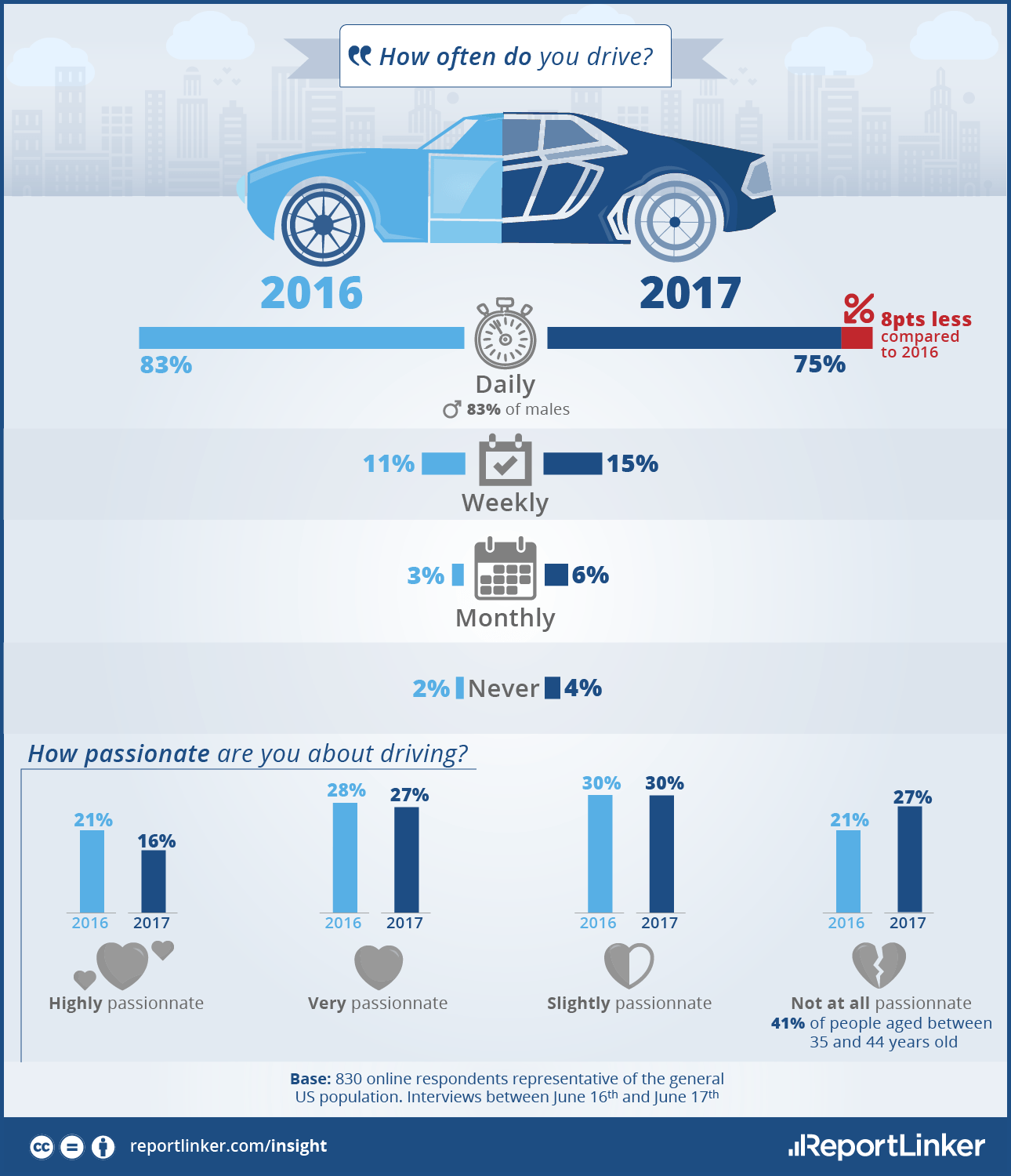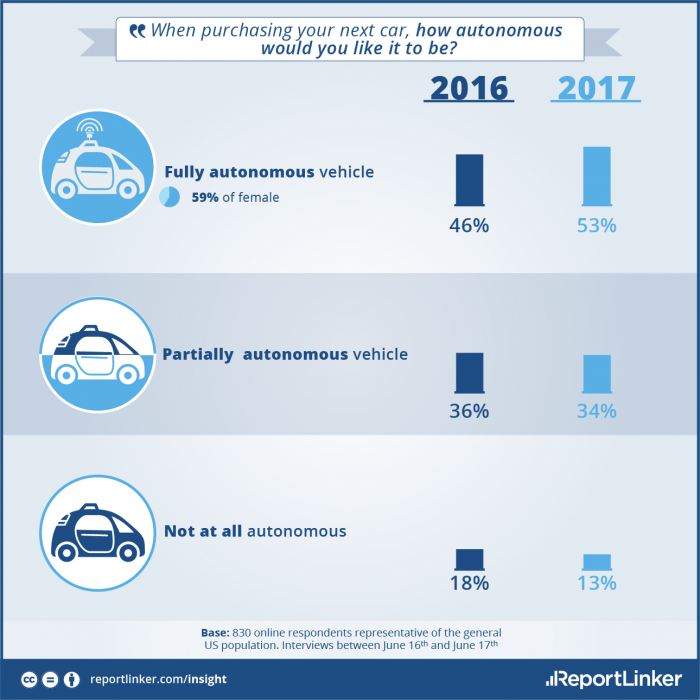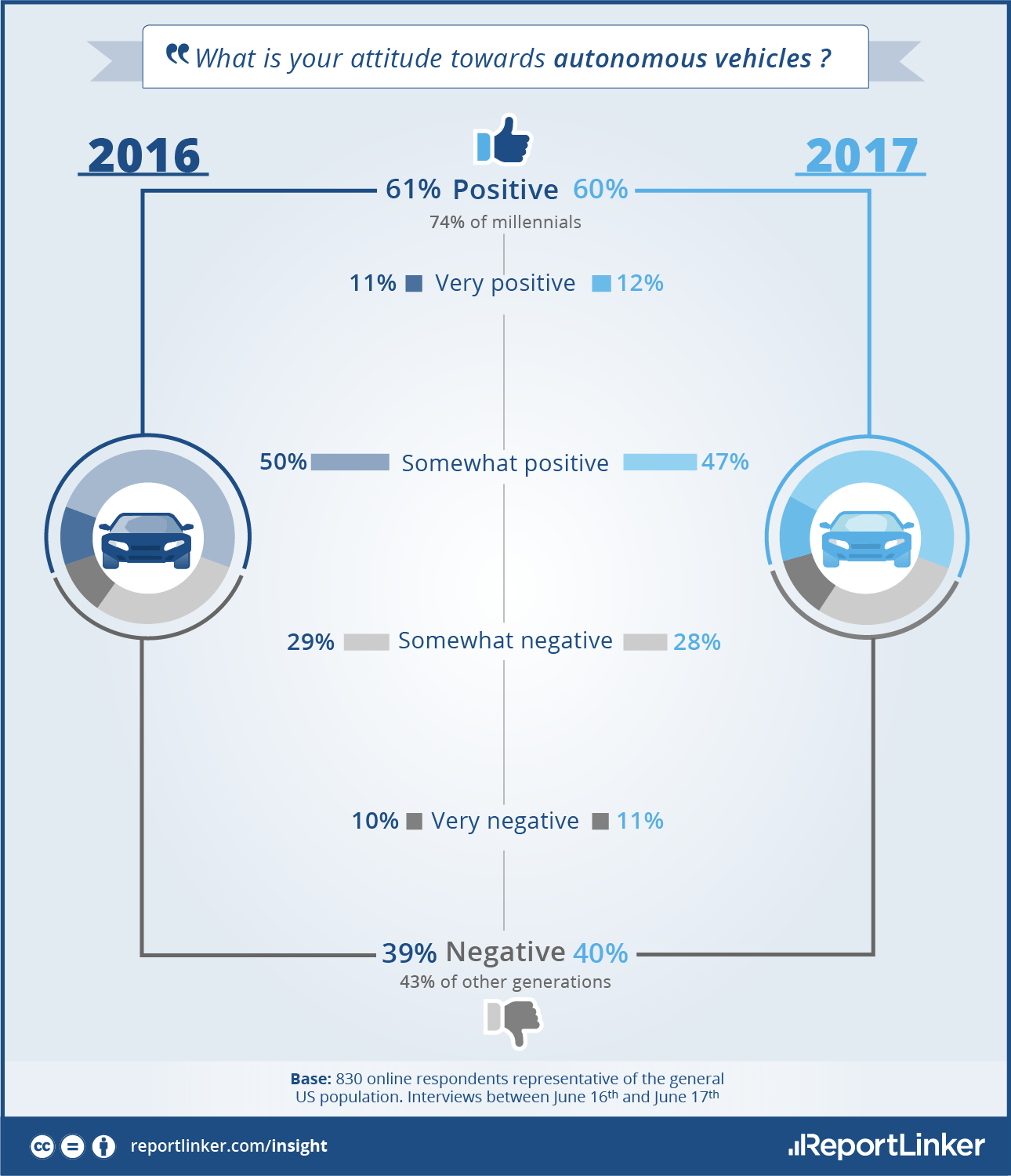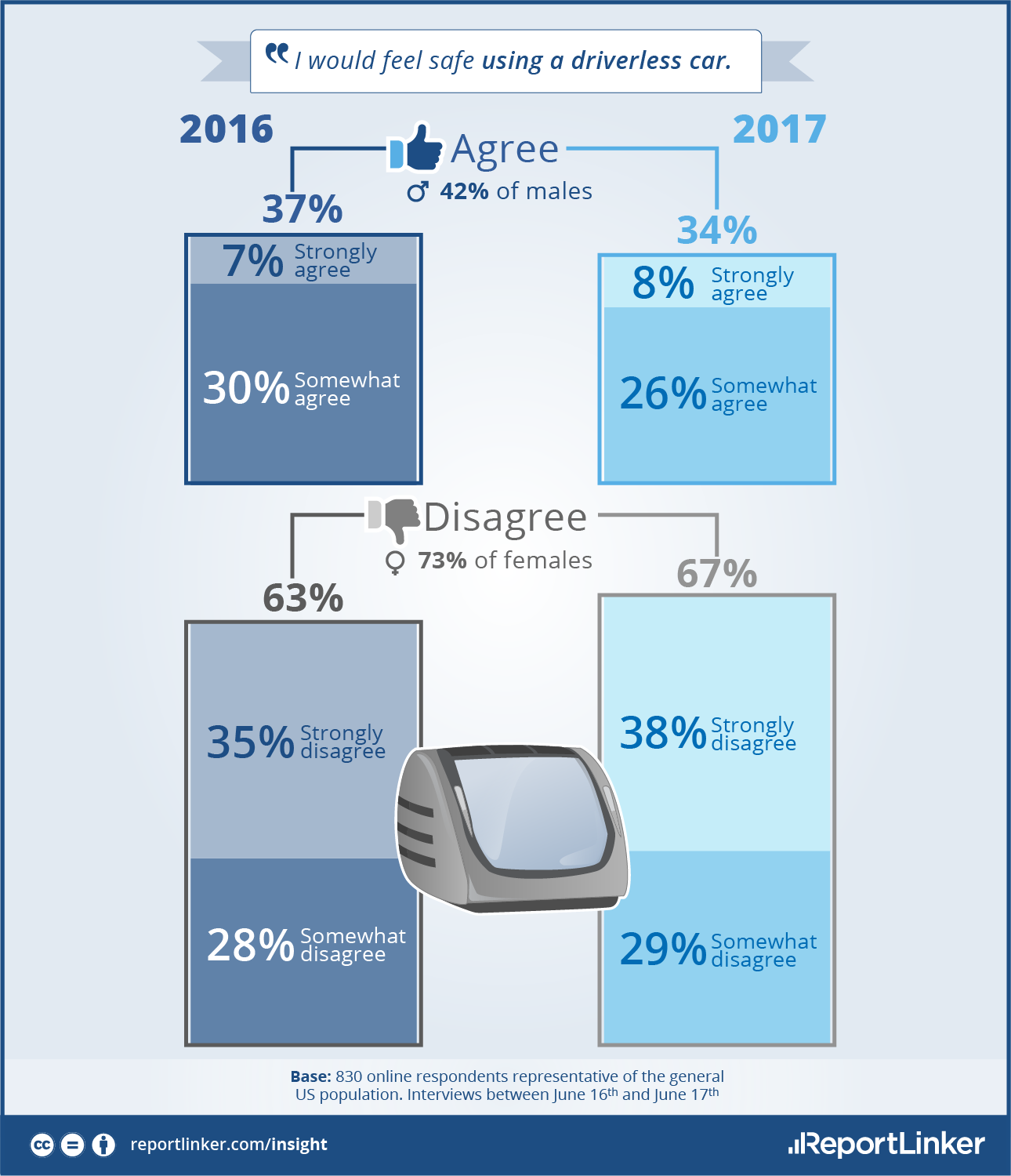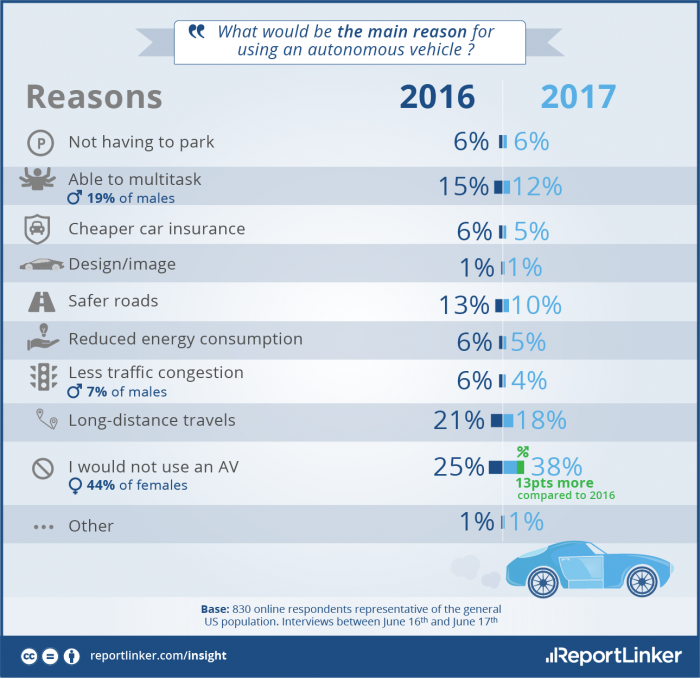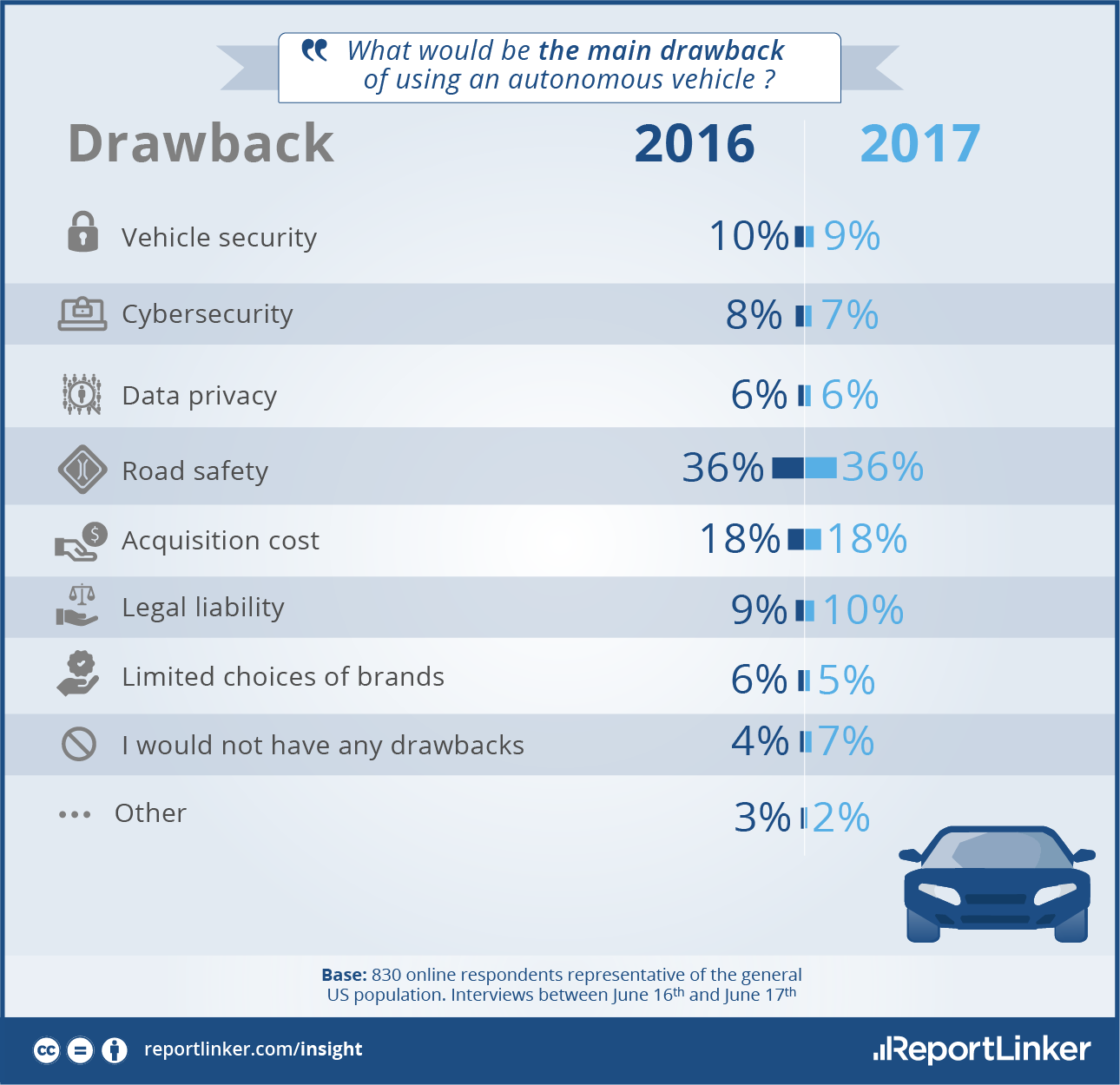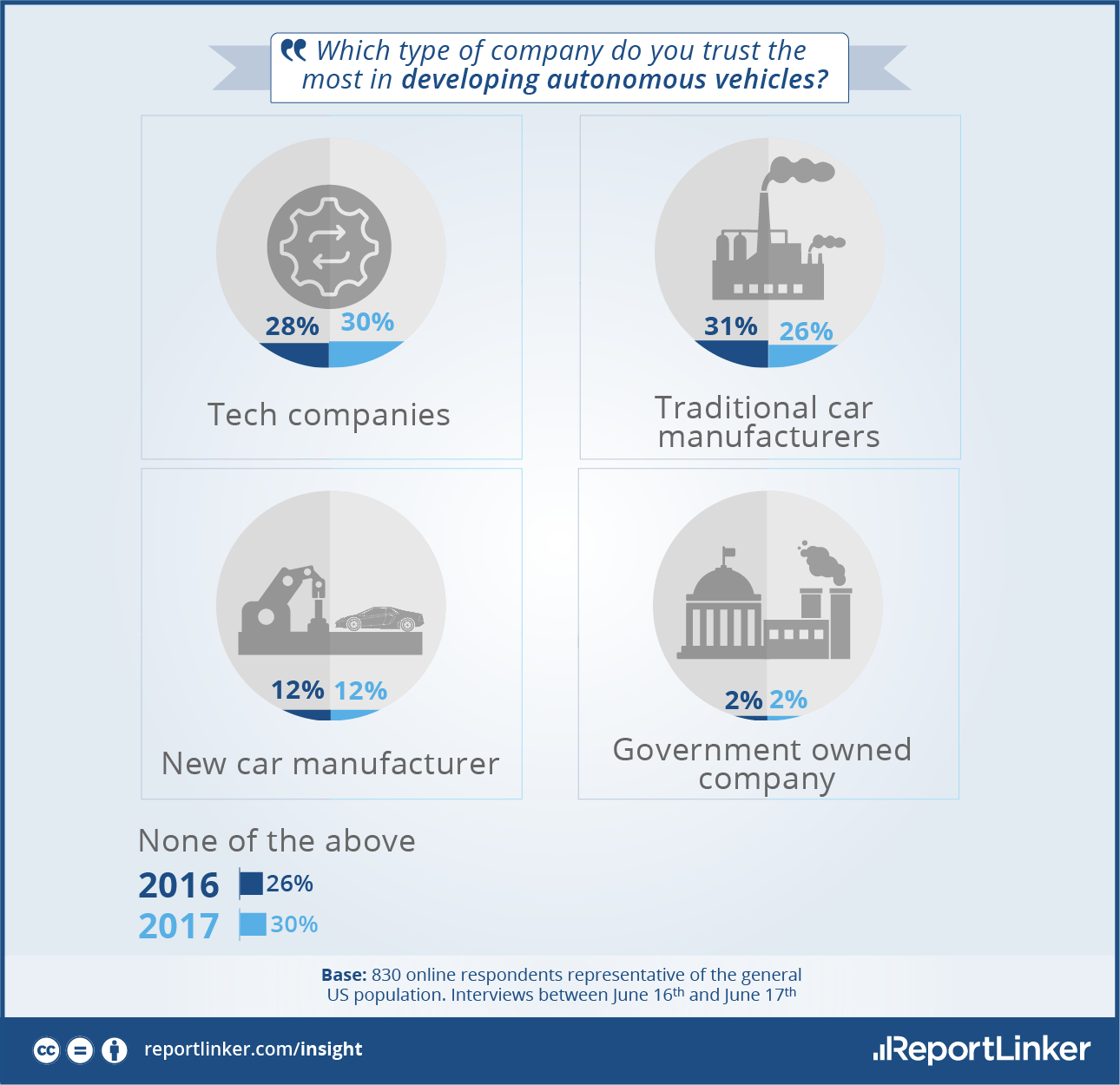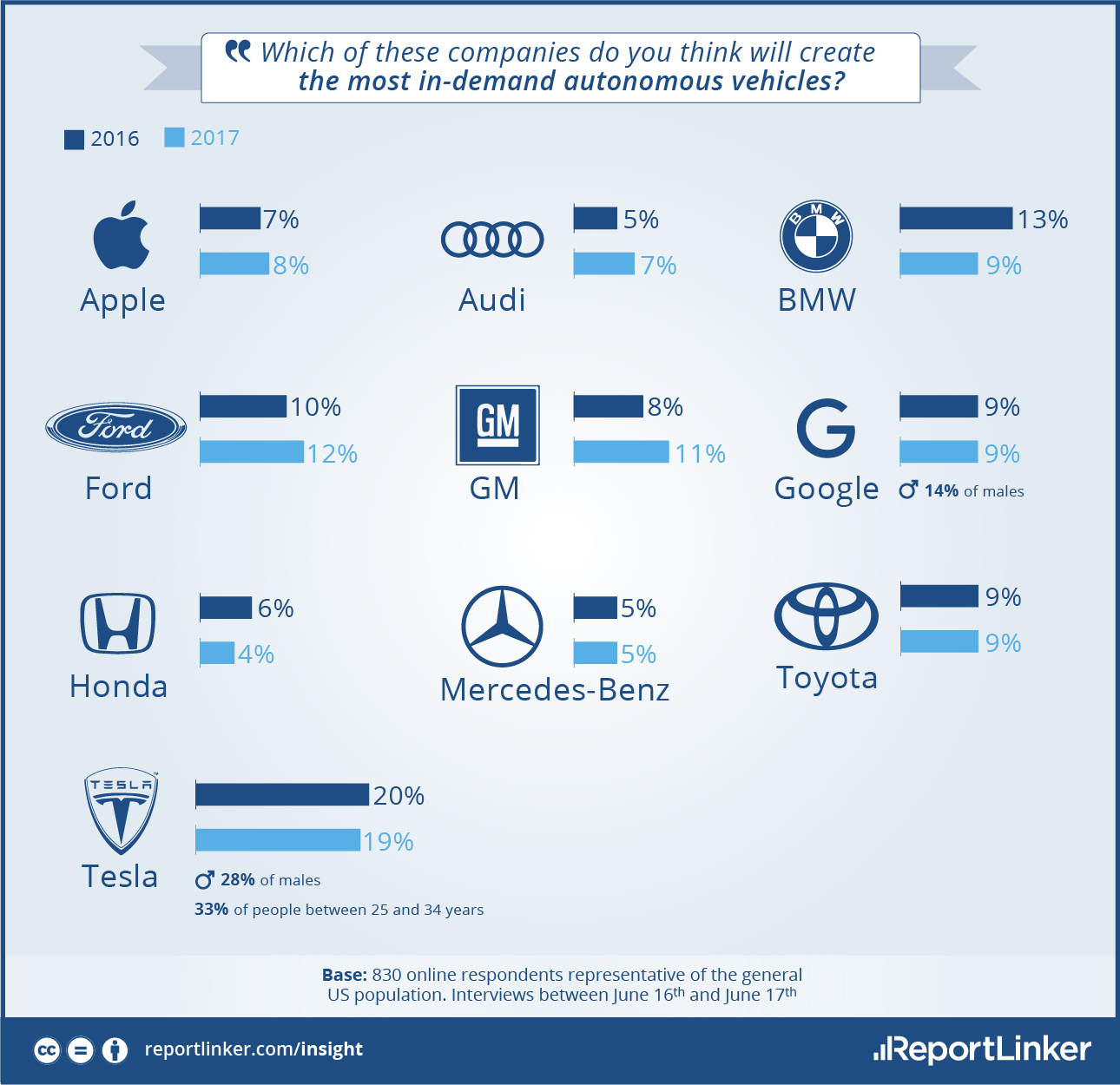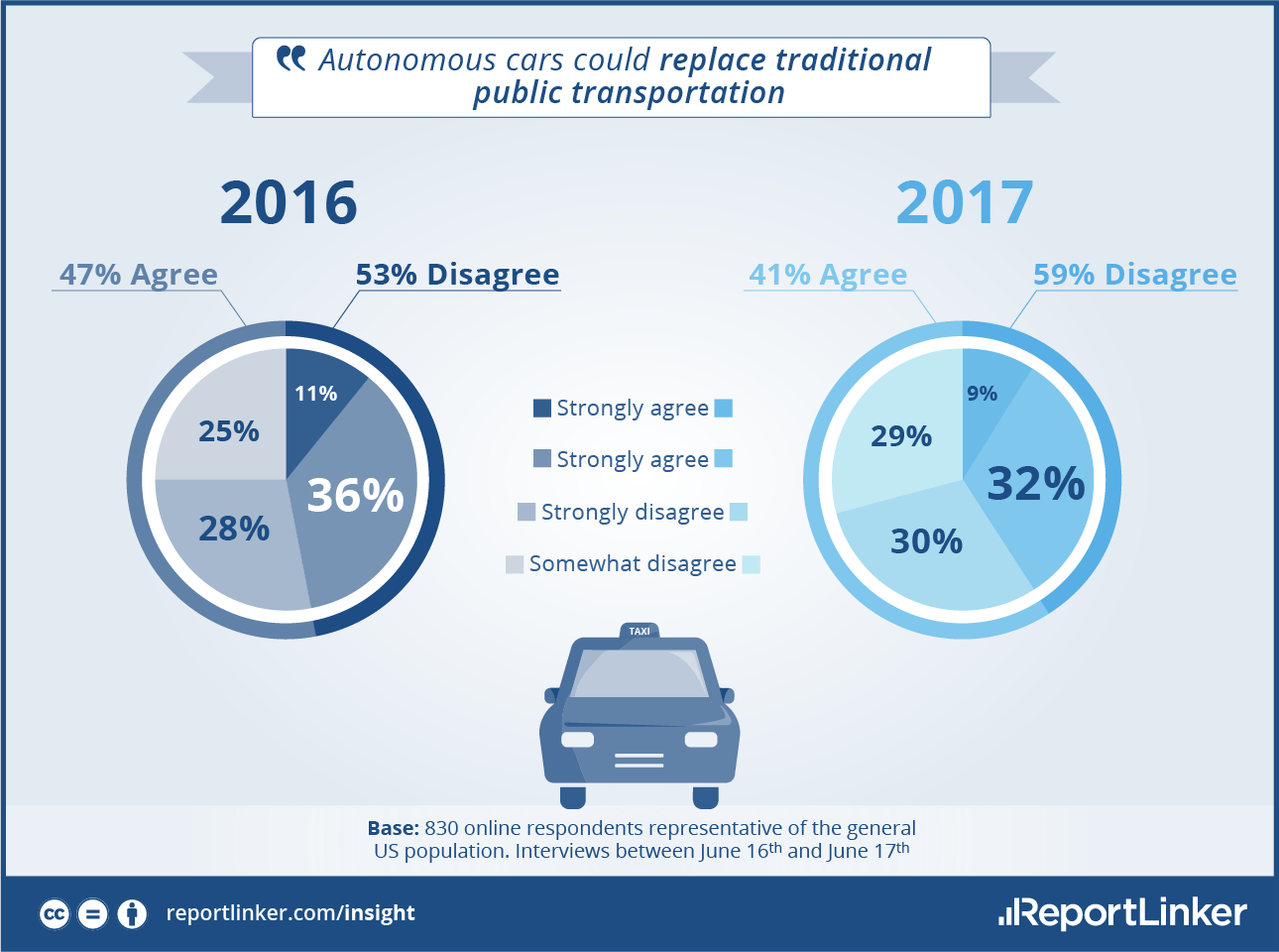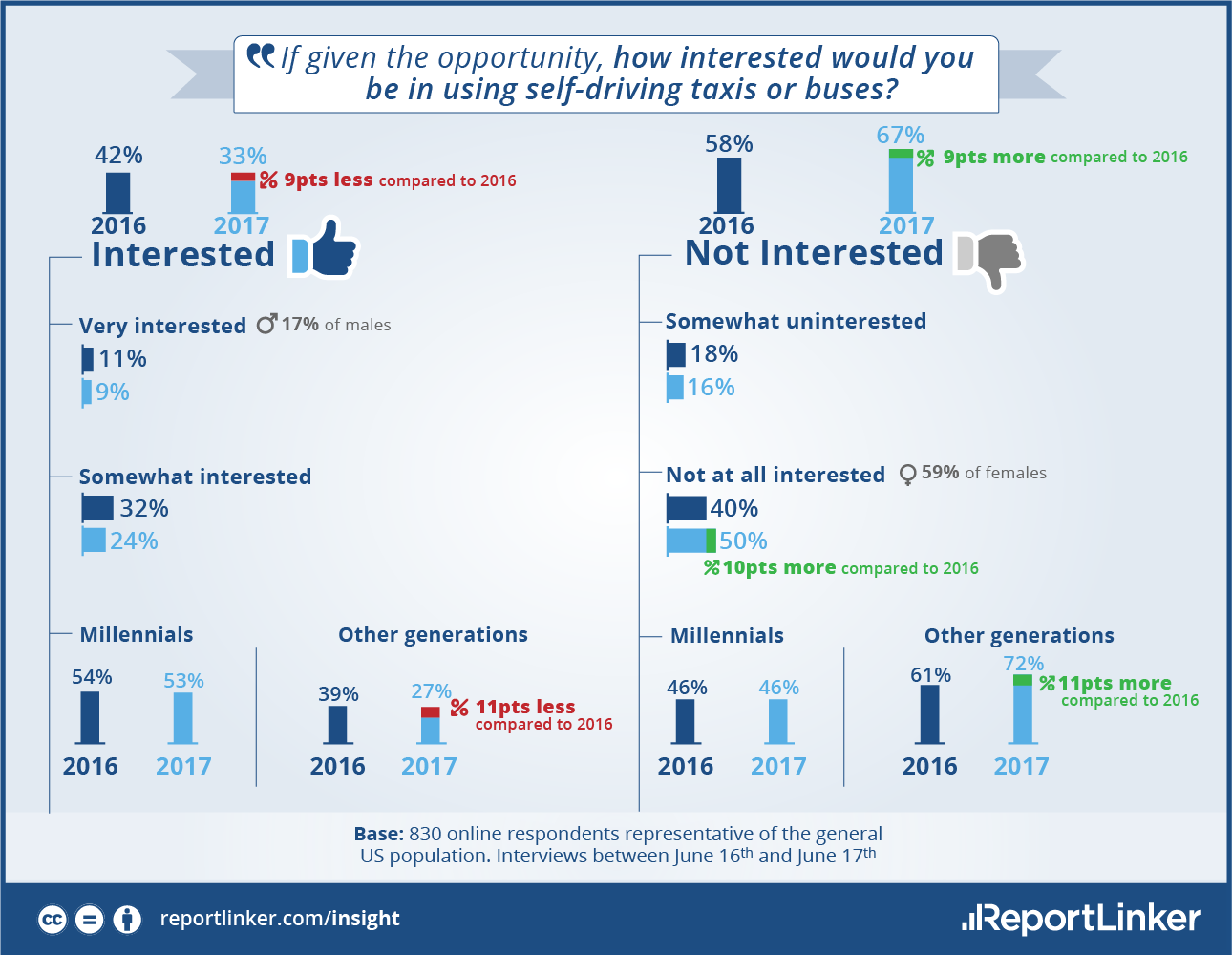While self-driving, automated cars have already been sold in the US, recent research conducted by ReportLinker involving 830 online US respondents indicates that automakers and marketers of automated cars still have a long and winding road ahead of them to make the selling of the vehicles in the US a profitable venture. This is because of mixed feelings and perceptions about self-driving cars.
One advantage that makers of self-driving cars can look to is that 27% of drivers, including 44% of those between 34 and 44 years of age, aren’t in the least passionate about driving. Perhaps this is because many years of driving or long work commutes have left them jaded about getting behind the wheel (although 43% of respondents are still quite passionate about it).
Another advantage to them is that the number of people, particularly women, who drive every day appears to be going down. People who drive less are more likely to be fine with someone else, including an AI, doing the driving.
Still another positive is that consideration of autonomous or semi-autonomous car purchases is trending upward. Notably, more than half of respondents, including 59% of females, would like their next car to be fully autonomous, up from less than half just a year ago. Another 34% would like to have a semi-autonomous car next.
However, in spite of this upward trend, and in spite of 74% of Millennials expressing a positive attitude about autonomous cars, 40% of respondents, including 43% of non-Millennials, are negative towards them. This is most likely because two-thirds of respondents—ironically enough, including 73% of females—say that they would not feel totally safe in a self-driving car. Worries about a car’s AI being hacked by a malicious coder and the fact that self-driving cars have already been in accidents are the most likely fears that people have.
Respondents give an array of reasons why they would utilise a self-driving car, including being able to multitask (most likely for work) and for long trips. However, 38% of respondents (once again, ironically enough, 44% of females) said that they simply would not use one. This is up significantly from 25% just a year ago.
When asked about perceived drawbacks to autonomous cars, far and away the number one worry was given as “road safety” (36%), possibly because AI driven cars are expected to drive at very high speeds and often maintain extremely small following distances (since they can supposedly stop instantly and have “perfect reflexes”). In addition, 26% worry about some kind of onboard computer or data safety issue and nearly one-fifth worry about the price.
Those most trusted with developing and selling self-driving cars are tech companies and the established traditional car companies. People are almost unanimously distrustful of the government helping to develop them.
When it comes to the question of autonomous cars replacing human-driven public transportation, 59% don’t think that can or ought to happen. That perception is up from 53% just a year ago. Furthermore, two-thirds of respondents have no interest in riding in self-driving taxis or buses, up from 58% a year ago.
All things considered, human beings still tend to trust the human touch more than they trust AI when it comes to the question of who, or what, ought to be driving our vehicles. Also, a significant number of people still love to drive, whether for the excitement or creative inspiration or some other reason. Perhaps US car makers ought to focus intensely on developing semi-autonomous cars.
Find a Home-Based Business to Start-Up >>> Hundreds of Business Listings.












































